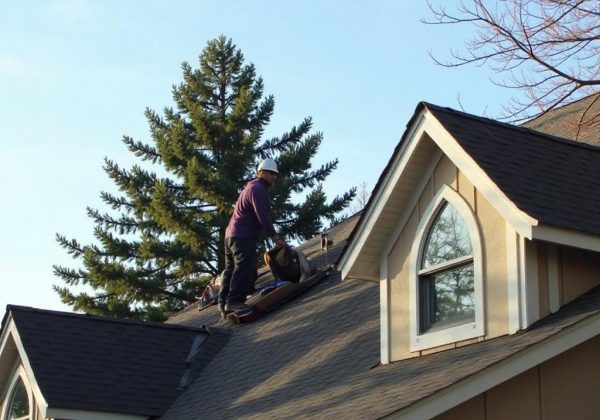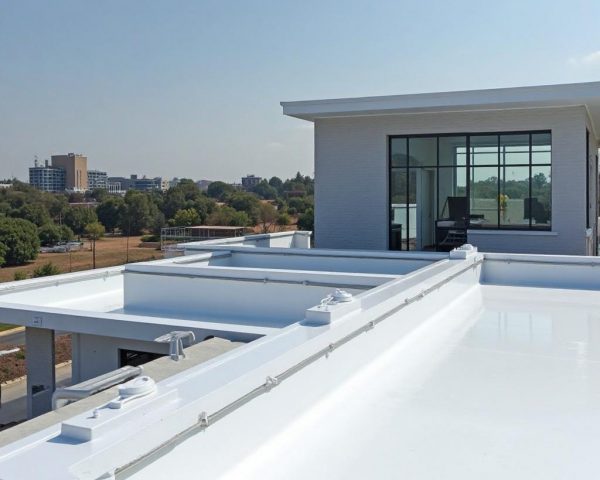How to Identify Red Flags and Ensure Your Roofer is Genuine
When you're looking to repair or replace your roof, finding trustworthy roofers can feel like searching for a needle in a haystack. With so many options available, how do you know which roofers near me are genuine? This article will guide you through spotting deception, identifying red flags, and ensuring that the roofer you choose is reliable and credible.
Why Choosing the Right Roofer Matters
Selecting a roofer isn’t just about aesthetics or price; it’s about the safety and longevity of your home. A well-installed roof protects your entire house from the elements. Poor workmanship can lead to leaks, mold growth, and structural damage. Understanding why it's crucial to pick the right contractor will help you make informed decisions.
The Importance of Quality Roofing Work
Quality roofing work ensures that your home remains safe and dry. It contributes to energy efficiency as well. If a roof is installed incorrectly, it might result in higher utility bills due to poor insulation.
How a Good Roofer Saves You Money
A skilled roofer may charge more upfront but can save you money in the long run. Quality materials and labor mean fewer repairs needed down the line. Investing in quality roofing is an investment in your home’s value.
Local Benefits of Hiring Roofers Near Me
Choosing local roofers has its perks. They understand local building codes and weather conditions better than out-of-town contractors. Plus, they're easier to reach for follow-up service or warranty claims.
Spotting Deception: How to Identify Red Flags and Ensure Your Roofer is Genuine
Identifying red flags when hiring a roofer can save you from future headaches. Here are some key indicators of potential deception:
1. Lack of License or Insurance
Always ask for proof of licensing and insurance before hiring any contractor. A legitimate roofer should have both general liability insurance and workers' compensation coverage.
What If They Don’t Have Insurance?
Hiring an uninsured roofer might leave you liable for any accidents on your property. Make sure to verify their credentials thoroughly.
2. No Written Estimate or Contract
A reputable roofer will provide a detailed written estimate outlining all costs involved. If they only give verbal quotes or refuse to put anything in writing, it's time to be cautious.
Why Is a Written Estimate Important?
Written estimates protect both parties by laying out expectations clearly. It helps avoid disputes over costs later on.
3. Unusually Low Bids
While everyone loves a good deal, extremely low bids could indicate cut corners or inferior materials being used.
What Should You Do If You Get a Low Bid?
Get explanations on why it's lower than others you've received—if they can't give satisfactory answers, move on.

4. High-Pressure Sales Tactics
If a roofer pressures you into making quick decisions or signing contracts without time for consideration, that’s a red flag.
How Should You Handle Pressure?
Take your time! A trustworthy contractor will give you space to think things over without undue pressure.
5. Limited Local References
Any reliable contractor should have plenty of local references that you can check out—if they don’t, it’s suspicious.
How Can You Verify References?
Ask for contact information from previous clients and take the time to follow up with them about their experiences.
6. Poor Online Reviews or Reputation
In today’s digital age, online reviews are essential for determining credibility. Check platforms like Google My Business or Yelp for feedback about local roofers near me.
What Should You Look For in Reviews?
Look for patterns in reviews rather than focusing solely on individual comments—this will give you a clearer picture of their reliability.
Common Roofing Scams: What to Watch Out For
Being aware of common scams can help protect yourself from dishonest contractors:
1. Storm Chasers
These are typically out-of-town contractors who show up after severe weather events offering quick repairs at inflated prices.
How Can You Spot Storm Chasers?
They usually lack local references and warranties; stick with established local companies instead!

2. Upfront Payment Requests
Be wary if a contractor demands full payment before starting work—most respectable companies will require only a deposit.
What Is Considered Normal Payment Structure?
A reasonable payment plan often includes an initial deposit followed by payments at different stages of completion.
3. Too-Good-to-Be-True Offers
If a deal seems too good to be true, it probably is! Always double-check market prices in your area.
Questions To Ask Potential Roofers
Asking the right questions can help clarify any doubts:
Are you licensed and insured?
Can I see examples of previous work?
Will there be written documentation covering our agreement?
What materials do you recommend and why?
How long will the project take?
Do you offer any warranties on your work?
Each question serves as another opportunity for them to prove their legitimacy while giving you peace of mind during this process.
Evaluating Your Options: Comparing Estimates Effectively
Once you've SCR, Inc. General Contractors gathered estimates from various roofers near me:
Compare not just pricing but what each includes.
Look at material quality offered.
Assess timelines provided—how long do they anticipate completion?
Factor in warranty offerings as part of overall value.
Read between lines on customer service approaches presented during estimate processes.
FAQ Section
Q1: How do I find roofers near me who are trustworthy?
A1: Start by asking friends or family for referrals, then check online reviews before making contact with potential candidates.
Q2: What should I look for when checking online reviews?
A2: Look for patterns rather than single opinions; consistent positive feedback indicates reliability while frequent complaints suggest issues that warrant concern.
Q3: Are there specific licenses required for roofing contractors in Texas?
A3: Yes! Texas requires residential roofing contractors to hold proper licenses depending on city regulations where services occur—always ask upfront!
Q4: What types of insurance should my roofer have?
A4: Ensure they carry general liability insurance along with worker's compensation coverage so you're protected if accidents occur onsite during projects!
Q5: Is it okay if my chosen roofer asks for upfront payment before starting work?
A5: While small deposits may be normal practice; full payment beforehand raises red flags—most reputable contractors will allow staged payments based upon project milestones reached instead!
Q6: What happens if my new roof leaks after installation—a warranty covers this situation?"
A6: Most professional companies provide warranties against leaks caused due their installation mistakes; however details vary widely so always confirm specifics before signing agreements!
Conclusion
Finding reliable roofers near me doesn't have to be complicated if you're vigilant about spotting deception early on! By remaining aware of red flags—from lacking insurance/licensing documentation through high-pressure sales tactics—you'll position yourself favorably throughout the hiring process while protecting both finances & home investments alike! Keep these insights handy next time renovation needs arise because nothing beats having peace-of-mind knowing solid choices made led towards sound outcomes ultimately achieved!